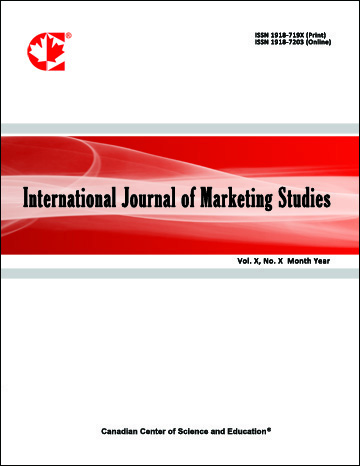How Engaged Customers Can Help the Brand: An Empirical Case Study on a Higher Education Institution (University) in Egypt
- Samia Adly Hanna El Sheikh
Abstract
The purpose of this paper is to investigate through an empirical research the relationship between Customer Engagement Behavior (CEB) and some of its alleged outcomes that include Benevolence/Trust, affective commitment and future patronage in a service sector which is Higher Education. Thus, this research investigates customer engagement constructs of conscious attention and emotional participation that lead to various favorable behaviors by the customer, which in turn leads to favorable outcomes of benevolence, affective commitment and future patronage. The researcher starts by a survey of literature which handles various aspects of CEB which include: possible types of these behaviors, factors affecting CEB, outcomes of CEB and CEB as compared to other marketing concepts. Next, the researcher proposes a model where engaged students (CE) will undertake favorable behaviors (CEB) which in turn will lead to favorable outcomes of Benevolence/trust, future patronage/repurchase intention and affective commitment. The researcher tests the model using Partial Least Squares structural equation modeling (PLS-SEM) and empirical data from a survey (self-administered questionnaire) that was distributed among 5 faculties of one private university in Egypt based on a case study approach. The results show that we accept the hypotheses of the model of the model yet the researcher suggests application on other universities to further test the model. Moreover, the researcher invites further research of other favorable outcomes of CEB as loyalty to be considered. The researcher also suggests an investigation of unfavorable CEB as bad word of mouth (WoM) and harmful blogging or unfavorable reviews.
- Full Text:
 PDF
PDF
- DOI:10.5539/ijms.v11n1p85
Journal Metrics
Google-based Impact Factor (2021): 1.34
h-index (July 2022): 70
i10-index (July 2022): 373
Index
- Academic Journals Database
- CNKI Scholar
- EconBiz
- Electronic Journals Library
- Excellence in Research for Australia (ERA)
- GETIT@YALE (Yale University Library)
- Harvard Library
- IBZ Online
- Infotrieve
- JournalTOCs
- LOCKSS
- MIAR
- PKP Open Archives Harvester
- RePEc
- ResearchGate
- ROAD
- Scilit
- SHERPA/RoMEO
- Stanford Libraries
- UCR Library
Contact
- Alyssa SunEditorial Assistant
- ijms@ccsenet.org
